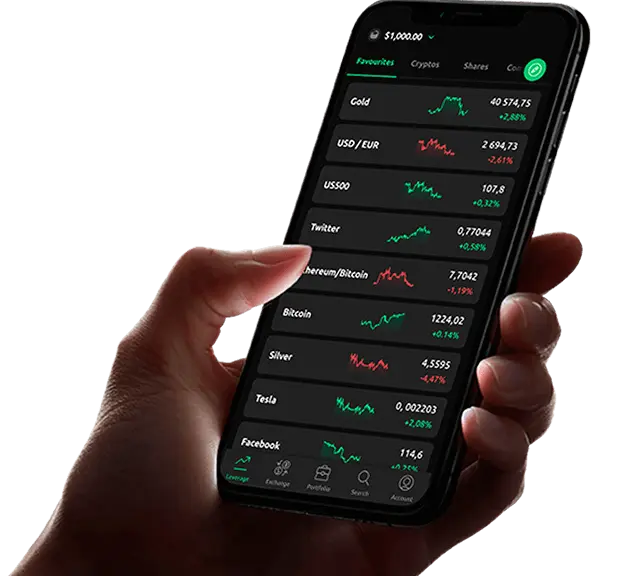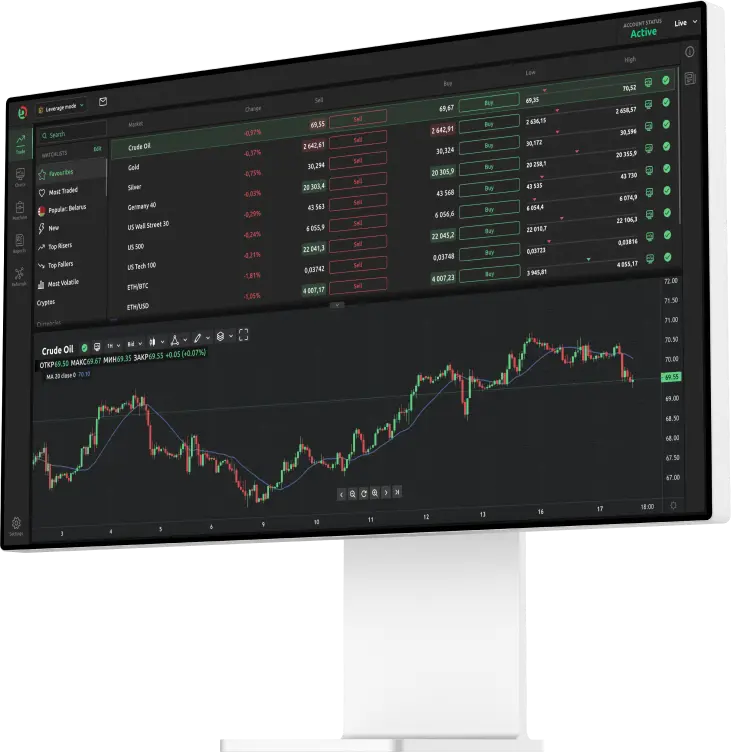Although both types aim to make profits, each has its own advantages and disadvantages.

Until a decade ago, investing and trading were mostly only for people and institutions with a large amount of capital. Nowadays, this is not the case: you can become a trader even with a smaller amount of money and gradually build your funds to make bigger profits.
There are two types of traders: full-time and part-time traders. Consequently, one of the big questions you need to ask yourself when it comes to trading is which type you want to be. Although in both cases, the objective is to make profits, they do differ in their characteristics and the associated advantages and disadvantages.
What is full-time and part-time trading?
You may think that a full-time trader is someone who makes money executing trades for eight hours a day and spending all day long in front of the computer. The reality is that a full-time trader can be defined as a person earning a living solely from trading activity. As far as the trading goes, transactions are commonly executed for two or three hours during peak trading hours (official trading hours). Also, transactions can be performed in the after-hours markets.
Of course, the trading period and length depends on the personal preferences of the trader. During non-trading hours, you will be focused on analyses, redefining your strategies and planning your next trades. Full-time traders should be well-acquainted with the investment and trading strategies and processes, and be aware of the pros and cons of relying on income from trading.
A part-time trader, on the other hand, is an individual with a regular job, who makes additional income with trading. This type of trading is especially a good starting point if you lack experience or you have limited or no knowledge in trading. Although, experts can also decide to trade part-time as a means to supplement their income while being regularly employed.
You would need much more capital to become a full-time trader compared to becoming a part-time trader. The reason is that full-time traders should make high enough profits to pay for their living expenses and the needed amount for investing can be £20,000 ($26,700). On the other hand, you can start as a part-time trader with less than £1,000 and gradually increase the amount you invest. Accordingly, you should understand that trading with smaller amounts of capital means that the profits will be lower as well. Before you choose which type of trader you will be, consider the respective advantages and disadvantages.
Full-time trading: advantages and disadvantages
Pros
- Flexible trading time: you can trade whenever you want, from wherever you want;
- Independence: you don’t depend on a regular job, so you don’t have a boss who is continuously monitoring your daily activities;
- Possibility for making higher profits because you have more time for trading higher initial capital and more time to analyse and identify profitable opportunities;
- Opportunity to trade during official session hours: you can execute trades during periods with a higher level of volatility, ie, exchange opening or closing hours.
Cons
- Limited finances if things go the other way: a string of losing trades at the beginning of your trading period could eat up your initial capital. Consequently, you will be in an awkward situation if you haven’t planned your money accordingly. You can end up in a situation in which you don’t have enough capital to resume your trading activities;
- High dependency on trading profit: since you rely entirely on profits made from trading, if profitable trades are not identified, then no profit will be made. You may not have enough money to cover your expenses;
- Requires advanced knowledge of trading processes and strategies, as this will be the primary source of income;
- A higher level of initial capital: if you don’t have an adequate level of funds, you can trade using the power of leverage offered by some brokers to make higher profits. Nevertheless, trading with leverage can be risky as it can enhance the amount lost from non-profitable transactions.
Part-time trading: advantages and disadvantages
Pros
- You can start with a smaller amount as investment capital. As trading is a way to make additional money, there is no need to have a more substantial amount of capital since the living expenses are paid out of the salary;
- An opportunity to make an extra income while working full time;
- The opportunity to reach financial freedom in a shorter time;
- No need for you to be an expert in trading because there are ways even for new traders to make profitable transactions (for example, social trading);
- Expanding your money-making knowledge.
Cons
- Time-consuming: it can take a significant portion of your spare time;
- Lack of focus: having a full-time job limits the time you have at disposal to learn, make analysis and develop trading strategies;
- Having a regular job during official trading hours limits the possibility to utilise the periods of increased volatility and making profits. Nevertheless, you can find a profitable strategy when trading in the after-hours markets;
- Limited availability of trading instruments: trading in the after-hours market can limit the trading opportunities because some of the instruments may have low volume.
The strategies you have available as a part-time or a full-time stock trader are somewhat similar. The difference is in the time you have to make analysis and execute trades, and your preferred time span of trading or investing. Irrespective of the type of strategy you decide to pursue, you can invest in all asset classes available at the market or at your online broker.
In the end, the decision whether to go part-time or full-time depends on your personal beliefs, experiences, plans and the time available. Still, regardless of what you choose, what matters is the desire and discipline to learn and gain the necessary skills and expertise. Also, be prepared to accept that some trades will be profitable, while some positions will not.
FURTHER READING: Should I invest in index funds?

